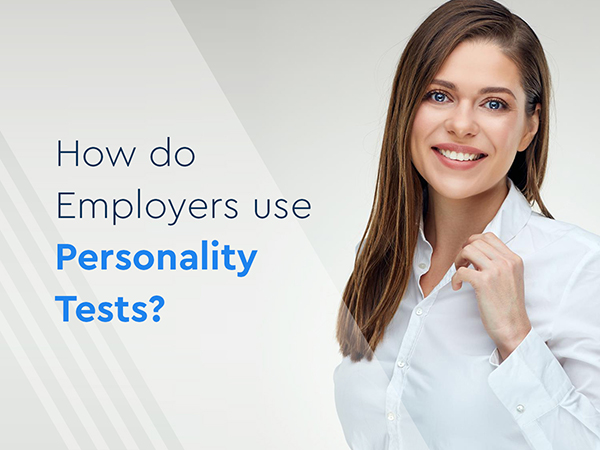If you’ve passed the screening stage for a job you’ve recently applied for, then you may be asked to complete a personality test. While personality tests sound daunting, they aren’t in practice. In this article, we will look into the most common types of personality tests, what they hope to find, and how employers use the results to determine who to hire.
The most common personality tests
Most employers notify you in advance if they expect you to complete a personality test. While you may not know the exact test they have in mind for you, here are the 6 most common personality tests used in recruitment today:
- Myers-Briggs Type Indicator (MBTI)
This commonly used test analyses and classifies you into one of 16 personality types by measuring how you perceive and prefer to engage with the world around you. - Activity Vector Analysis (AVA)
The AVA classifies your personality in terms of your aggressiveness, sociability, emotional control, and social adaptability. - Holland Codes
This psychometric test determines whether you are a doer, thinker, creator, helper, persuader, or organizer and is used to help recruiters find the right fit for a specialized role. - Sixteen Personality Factor Questionnaire (16PF)
This test classifies your personality as either low range or high range in the following areas: warmth, reasoning, emotional stability, dominance, liveliness, rule-consciousness, social boldness, sensitivity, vigilance, abstractness, privateness, apprehension, openness to change, self-reliance, perfectionism, tension. - DISC assessment
This psychometric test is used in recruitment to determine how your personality aligns with dominance, inducement, submission, and compliance - Big Five Personality Test
Determines how your personality fits against the big five personality traits which are openness, conscientiousness, extraversion, agreeableness, and neuroticism.
How employers use personality test results
Personality test results are most commonly used in the final stages of recruitment. Here are the 4 major things employers look for when examining personality test results:
- What kind of person you truly are
Employers can only learn so much from resumes, references, and job interviews. Personality testing provides an extra dash of insight that even candidates may be unaware of, which is why it is good for job seekers to take a personality test on their own to see what companies learn about them.
When employers know who you are, they can then make an objective call on whether you’d fit the position. It’s ideal for the person they hire to be a good match for the actual day to day demands of the job. Personality testing allows companies to see, for instance, who is best suited to spend all day at their desk taking orders from superiors, and they’re also able to determine who will comply with their requests.
- To determine your self-awareness
Employers look for consistency across every stage of the job interview process. This means your references should up your claims on your resume, and your responses in your interview should be backed up by detailed evidence. This also applies to your personality test, which employers often broach with an interview question about your strengths and weaknesses.
If you truly know yourself, and you know your weaknesses, then they should align with what the potential employer has seen in your personality test. Doing so shows you are honest and emotionally mature, not doing so gives you the impression you’re either trying to conceal bad habits or you’re simply not aware you have them – which isn’t good!
- To find the perfect organizational fit
Many employers look for candidates who will positively contribute to the workplace, through active socialization, demonstrating a positive attitude, or through efficient teamwork. All of these attributes can be determined in your personality test results. On the other hand, organizations may be looking for someone who gets the job done, doesn’t waste time in idle chatter, and is able to operate without being micromanaged.
There’s no right or wrong answer when it comes to your personality type and the preference your dream company has for that specific role. It’s always good to remember that personality tests are not fixed – if you know you prefer to work alone but you’re interviewing for a role that relies heavily on teamwork, feel free to speak up in the interview round to increase your chances of success.
- To find out whether you are honest
There is always one candidate who tries to manipulate their personality test results. Applicants do this when they try to give ‘ideal’ answers, but fail to keep up the consistency of their responses across the board. This is obvious in the results and can make you appear untrustworthy or manipulative, two characteristics that won’t result in a job offer.
Self-awareness is key!
Personality tests are designed to give employers insight into who you are as a person. When combined with your resume, references, and your interview responses, it will give employers a clear indication of whether you’d be a good fit for their business.
While personality tests require no preparation, knowing yourself well puts you a step above the competition. When you are aware of your results, you can use the information to engage in a more meaningful discussion, which may result in you securing the role. Why not put yourself in your prospective employer’s shoes and see whether you are a good fit for your dream role?
Take a free personality test today!
